Critical Research Paradigms
Compares research paradigms and epistemologies and examines critical and transformative research approaches.
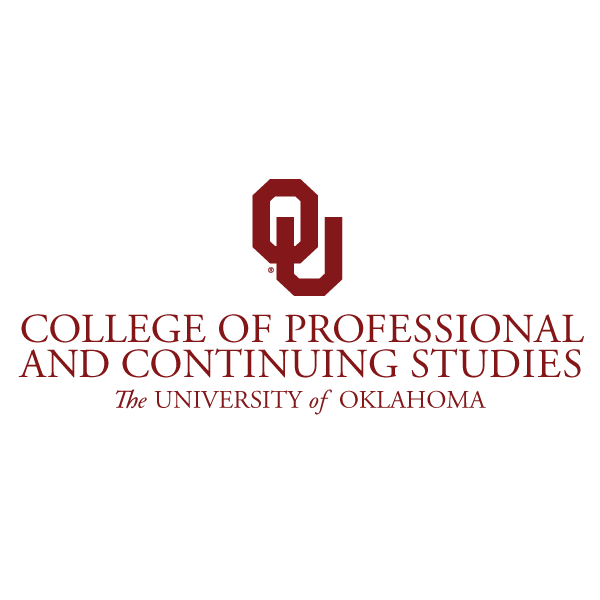
Critical Research Paradigms
Compares research paradigms and epistemologies and examines critical and transformative research approaches.
| Dates | January 31-March 22, 2023 |
| Format | Virtual: Course to be held via Zoom and Canvas |
| Location for on-site courses | Building 2775, 2nd Floor, Room 11. Kapaun Air Station, Kaiserslautern, Germany |
| Hours | Specified Wednesdays (listed below in the Course Outline section) from 6:00 - 8:00pm CET/CEST |
| Last day to enroll or drop without penalty | January 30, 2023 |
| Name | Ms. Lowell Tilden |
| Office address/location | Panzer Strasse, Army Education Center, Bldg. 2915, 4th Floor, Room 402A, Panzer Kaserne, 71032, Boblingen, Germany |
| Office hours | Tuesday and Wednesday: 0830-1630 |
| [email protected] | |
| DSN and CIV phone | DSN: 596-3304 CIV: 011-49-09641-70-596-3304 |
| Course Professor | Dr. Crag Hill |
| Mailing Address | 820 Van Vleet Oval ECH 335, Norman, OK 73019 |
| Telephone Number | 405-325-1498 |
| Email Address | [email protected] |
| Professor availability | The professor will be available via email to students before and after the class sessions. |
Student materials are available at the OU Bookstore Website at https://ou.textbookx.com/institutional/index.php. The website has book selling, renting, buying, returning, and order tracking capabilities. If you need help with an order, or if you have any questions contact the toll-free phone at 1-(855)-790-6637, agents are available from 9a – 5p (EST) Monday – Friday. Text prices are available online.
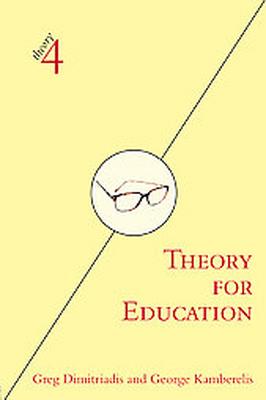
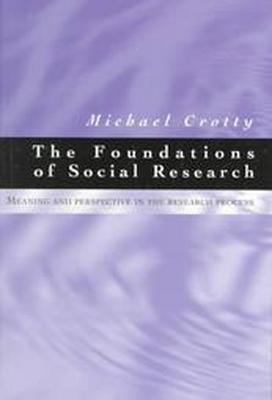
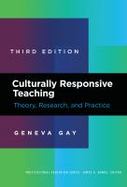
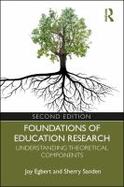
1. Understand the difference between conceptual framework, epistemology, paradigm, theoretical framework, methodology and methods, and use that knowledge to critique existing research
2. Distinguish, compare and contrast different epistemologies/paradigms that guide research
3. Demonstrate the ability to plan a research study that is guided by a conceptual framework and demonstrates a particular paradigm/epistemology using an appropriate theoretical framework and methodology.
|
Dates |
Assignments |
|
Week 1 January 30-February 3 Synchronous meeting February 1 at 6-8 pm via zoom Meet & greet & course overview |
Order books and familiarize yourself with the course Canvas site. Write a post introducing you as teachers and researchers to your classmates in Canvas Discussion. (More info forthcoming.)
In addition, post on the following topic: Week One: Inquiry topic (prompt forthcoming in Canvas)
|
|
Week 2 February 6-10 Synchronous meeting February 8 at 6-8 pm via zoom
Egbert & Sanden pp. 1-29 (Chapters 1-3)
|
We will be discussing the readings when we meet via zoom (see specific readings assignments for the face-to-face portion of the course below). Once you have your course texts begin reading. For this week read Egbert & Sanden pp. 1-29 and complete the Readings Response & Discussion via the Discussion Board in the course Canvas. Your response to the readings is due by Monday February 6 at 8:00 pm. These responses will inform our Zoom meeting.
Canvas prompt: Week 2: What is your conceptual framework? (We will talk about this in our first meeting on February 1.)
Identifying research articles. Initial search (what are good sites to search for peer-reviewed articles?)
|
|
Week 3 February 13-17 Synchronous meeting February 15 at 6-8 pm via zoom Egbert & Sanden pp. 30-70 (Chapters 4-6)
|
For this week, read Egbert & Sanden pp. 30-70 and complete the Readings Response & Discussion via the Discussion Board in the course Canvas page. Your response to the readings is due by Monday February 13 at 8:00 pm. These responses will inform our Zoom meeting.
Canvas prompt: Week 3: Paradigms and Knowledge
Continue to identify research articles. Downloading three-four articles relevant to your research inquiry |
|
Week 4 February 20-24 Synchronous meeting February 22 at 6-8 pm via zoom Egbert & Sanden pp. 71-94 (Chapters 7-8) Crotty pp. 1-41 (chapters 1-2)
|
For this week, read Egbert & Sanden pp. 71-94 and Crotty pp. 1-41 and complete Readings Response & Discussion via the Discussion Board in the course Canvas. Your response to the readings is due by Monday the 20th at 8:00 pm. These responses will inform our next Zoom meeting.
Canvas prompt: Week 4: Theories and Research
Continue to identify research articles. Downloading three-four articles relevant to your research inquiry |
|
Week 5 February 27-March 3 Synchronous meeting March 1 at 6-8 pm via zoom Crotty pp. 42-111 (Chapters 3-5)
|
For this week, read Crotty pp. 42-111 Your response to the readings is due by Monday the 27th at 8:00 pm. These responses will inform our Zoom meeting.
ARR/R (Activate, Read, Revisit/Reflect): Strategy to prepare for critiquing research articles. Bring articles you have selected for your research inquiry
Practice critiquing one article based on ARR/R exercise
|
|
Week 6 March 6-10 Synchronous meeting March 8 at 6-8 pm via zoom Crotty pp. 112-182 (Chapters 6-8)
|
For this week, read Crotty pp. 112-182. Your response to the readings is due by Monday the 6th at 8:00 pm. These responses will inform our Zoom meeting.
Canvas prompt: Week 6: Critiquing research
Continue to practice critiquing one article based on ARR/R exercise
|
|
Week 7 March 13-17 Synchronous meeting March 15 at 6-8 pm via zoom Crotty pp. 183-216 (Chapters 9-10)
|
For this week, read Crotty pp. 183-216. Your response to the readings is due by Monday the 13th at 8:00 pm. These responses will inform our Zoom meeting.
Canvas prompt: Week 7: Reflecting on the planning process for research
Research article critiques due March 15
|
|
Week 8 March 20-24 Synchronous meeting March 22 at 6-8 pm via zoom
|
Finish up research paper. Due March 23.
Canvas prompt: Week 8: Reflecting on learning about the research process
|
Participation
You are expected to act professionally during the class, including being prompt to class and staying for the entire time; actively participating in in large and small group discussions and activities; actively and respectfully listening and responding to the comments and questions made by fellow students; and being prepared for each class session.
Canvas Posts, 15 % (13 total posts, approx.. 200-250 words)
In addition to responding on Canvas to the reading for weeks 2-7, you will also engage in seven weekly prompts that will guide you through the research process. The purpose of the online discussion is to provide a forum for you to try out ideas as you plan a possible research study based on your own conceptual framework and epistemology as well as to provide feedback to other members of the class on their ideas. The discussion will begin on Week 1 listed in the course outline and continue through Week 4. It will begin again on Week 6 and continue through Week 8.
Research article critiques, 35%
The purpose of this assignment is twofold: a) compile potential research articles for your inquiry/research project to help you identify potential theories/theoretical framework for the research you will plan and b) provide practice in identifying different aspects of published research and critiquing their appropriateness.
Find 8 research articles that are relevant to your inquiry/research project topic and research question. You should find articles that use a variety of different research methodologies.
Choose 3 of the research articles to critique. They should each use a different research methodology.
We will practice critiquing articles during the in-person class on March 1. Due March 15
Research Paper on the future of learning in your area of interest, 50%
(Possible topics: American public schools, instructional methods, simulation, film, literature, science, mathematics, primary experience, English language learners, medicine, art, service learning, a topic that interests you). Include:
This should be submitted via Assignments in Canvas no later than 8:00 pm, Thursday, March 23
Grading:
A = 90-100; B = 80-89; C = 70-79; D = 60-69; F = below 60
Attendance/Grade Policy
Attendance and participation in interaction, individual assignments, group exercises, simulations, role playing, etc. are valuable aspects of any course because much of the learning comes from discussions in class with other students. It is expected that you attend all classes and be on time except for excused emergencies.
Excused absences are given for professor mandated activities or legally required activities such as emergencies or military assignments. It is the policy of the University to excuse absences of students that result from religious observances and to provide without penalty for the rescheduling of examinations and additional required class work that may fall on religious holidays. Unavoidable personal emergencies, including (but not limited to) serious illness; delays in getting to class because of accidents, etc.; deaths and funerals, and hazardous road conditions will be excused.
If you are obtaining financial assistance (TA, STAP, FA, VA, Scholarship, etc.) to pay all or part of your tuition cost, you must follow your funding agency/institution’s policy regarding “I” (Incomplete) grades unless the timeline is longer than what the University policy allows then you must adhere to the University policy. Students who receive Financial Aid must resolve/complete any “I” (Incomplete) grades by the end of the term or he/she may be placed on “financial aid probation.” If the “I” grade is not resolved/completed by the end of the following term, the student’s Financial Aid may be suspended make the student ineligible for further Financial Aid.
Students are responsible for meeting the guidelines of Tuition Assistance and Veterans Assistance. See the education counselor at your local education center for a complete description of your TA or VA requirements.
OU faculty will submit grades online through ONE not later than 30 days after the course end date. Course end dates are approximately one calendar month after the final seminar date on this syllabus and are provided on the official scheduling website for reference.
Academic Integrity and Student Conduct
Academic integrity means honesty and responsibility in scholarship. Academic assignments exist to help students learn; grades exist to show how fully this goal is attained. Therefore all work and all grades should result from the student's own understanding and effort.
Academic misconduct is any act which improperly affects the evaluation of a student’s academic performance or achievement. Misconduct occurs when the student either knows or reasonably should know that the act constitutes misconduct. Academic misconduct includes: cheating and using unauthorized materials on examinations and other assignments; improper collaboration, submitting the same assignment for different classes (self-plagiarism); fabrication, forgery, alteration of documents, lying, etc…in order to obtain an academic advantage; assisting others in academic misconduct; attempting to commit academic misconduct; destruction of property, hacking, etc…; intimidation and interference with integrity process; and plagiarism. All students should review the Student’s Guide to Academic Integrity at http://integrity.ou.edu/students_guide.html
Students and faculty each have responsibility for maintaining an appropriate learning environment. All students should review policies regarding student conduct at http://studentconduct.ou.edu/
Accommodation Statement
The University of Oklahoma is committed to making its activities as accessible as possible. For accommodations on the basis of disability, please contact your local OU Site Director.
Adjustment for Pregnancy/Childbirth-Related Issues
Should you need modifications or adjustments to your course requirements because of documented pregnancy-related or childbirth-related issues, please contact the professor as soon as possible to discuss. Generally, modifications will be made where medically necessary and similar in scope to accommodations based on temporary disability. Please see http://www.ou.edu/content/eoo/faqs/pregnancy-faqs.html.
Title IX Resources
For any concerns regarding gender-based discrimination, sexual harassment, sexual misconduct, stalking, or intimate partner violence, the University offers a variety of resources, including advocates on-call 24/7, counseling services, mutual no-contact orders, scheduling adjustments, and disciplinary sanctions against the perpetrator. Please contact the Sexual Misconduct Office at [email protected] or (405) 325-2215 (8-5), or the Sexual Assault Response Team at (405) 615 -0013 (24/7) to report an incident. To learn more about Title IX, please visit the Institutional Equity Office’s website at http://www.ou.edu/content/eoo.html
Course Policies
Extended Campus (also and formerly known as Advanced Programs) policy is to order books in paperback if available. Courses, dates, and professors are subject to change. Please check with your OU Site Director. Students should retain a copy of any assignments that are e/mailed to the professor for the course. Neither duplicating services nor office supplies are provided.
Any and all course materials, syllabus, lessons, lectures, etc. are the property of professor teaching the course and the Board of Regents of the University of Oklahoma and are protected under applicable copyright.
For more information about OU Extended Campus, visit our website at: http://www.goou.ou.edu/
Statement on Respect
The classroom should provide a safe learning environment where students can express their views without fear of reprisal. That freedom of expression must be balanced by demonstrated respect for other’s viewpoints and appropriate and reasonable sensitivity, especially within the context of scholarly disagreement. Disrespectful or uncivil dialogue (including, but not limited to, personal attacks, insults, or harassment) will not be tolerated.
Recording Devices/Phones/Computers
It is important for students to be fully present during class to fully benefit from lectures, discussions, and experiential assignments. Class sessions may not be tape-recorded. All telephones and pagers should be turned off or placed on silent mode. Computers may not be used during class. Students who require an exception to this policy should discuss exceptional circumstances with the professor.
Crag Hill, Ph.D.
Education
Current Positions
Frequently Taught Advanced Programs Courses
EDEN 5940 Field Studies in Education: Literature for Young Adults
EDSC 5523-220 The Science of Learning Theories
Major Areas of Teaching and Research Interest
Representative Publications and Presentations
Hill, C. (2012). “Dystopian Novels: What Imagined Futures Tell Young Readers About the Present and Future.” Teaching Young Adult Literature Today: Insights, Consideration and Perspectives for the Classroom Teacher and Educational Researcher. Judith Hayn and Jeffrey Kaplan (Eds), 99-115. Lanham, MD: Rowan and Littlefield.